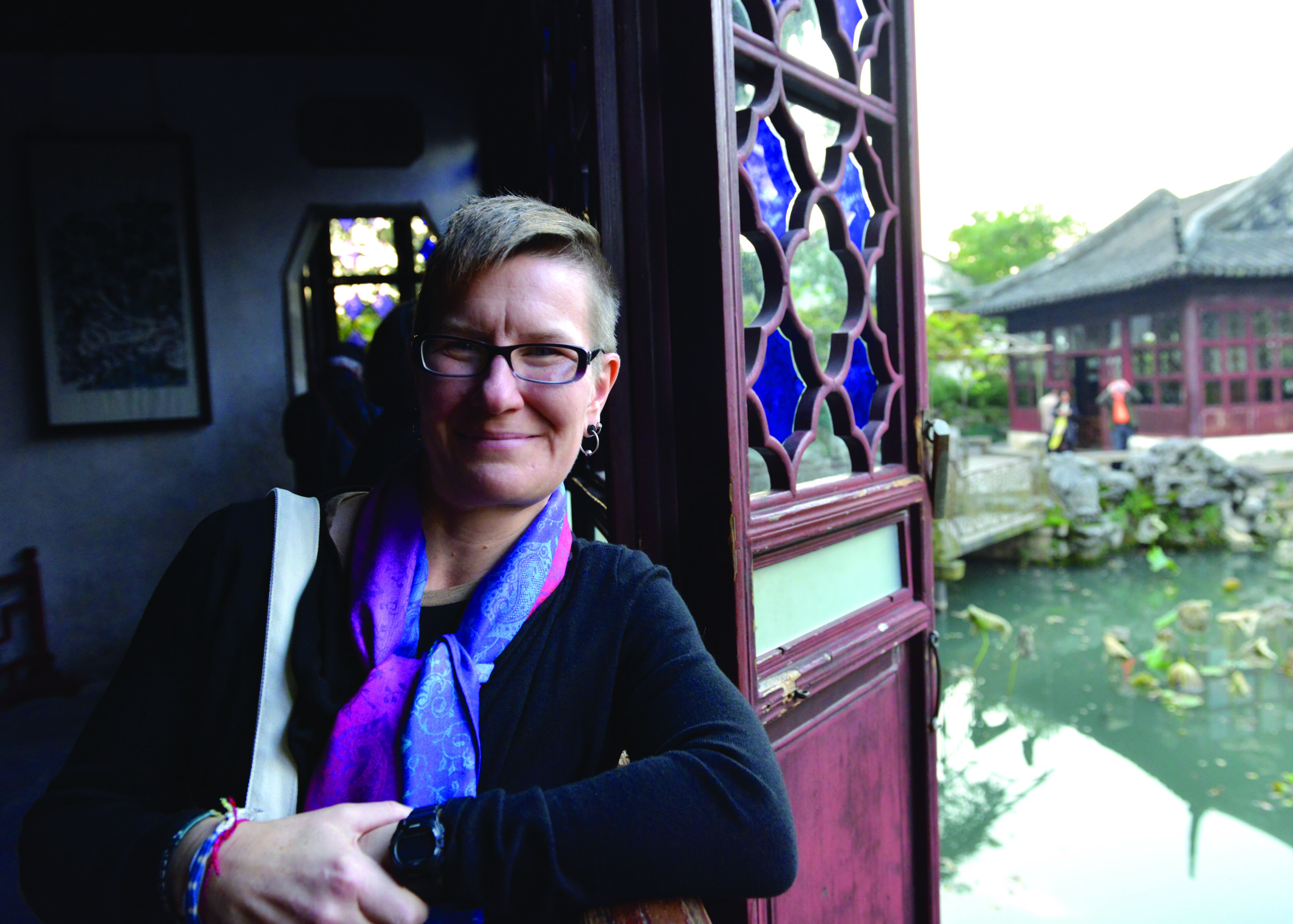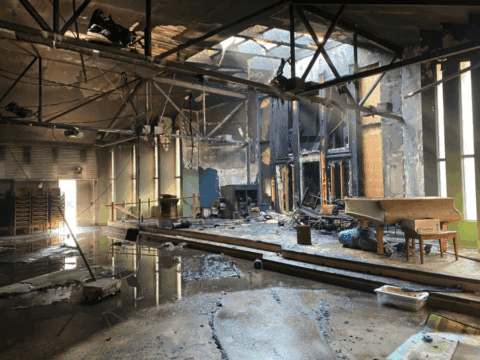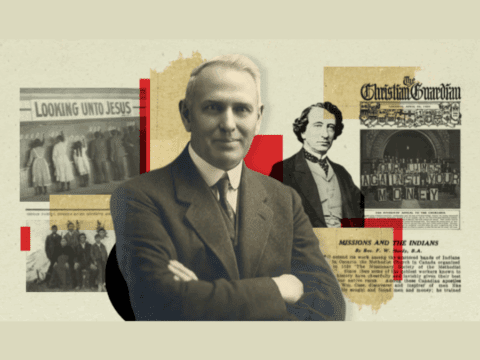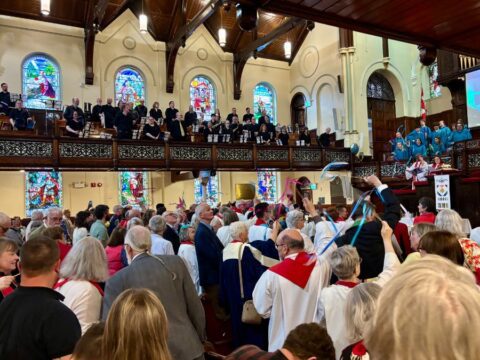Q : What is the hardest part of your role as moderator?
A : One of the difficult things is trying to find a good way to hold the pain that I encounter in the church, about the changes that are going on, losses that congregations are experiencing or grief over closures. What’s been really difficult is the pain that Indigenous communities have suffered: lots of loss, lots of our young people attempting or dying by suicide. The ongoing and daily losses are associated with the profound injustices that Indigenous people continue to experience in our country, facing a colonial system both within the church and the larger society. And the pain that folks are carrying from the whole legacy of the residential schools, whether they are survivors of the schools or intergenerational survivors. There’s just so much pain.
As moderator, it’s important for me to walk with people and hear that pain, to be affected and changed by it, and to hold it but not get so swamped by it that I can’t function. I am carrying more grief than I was three years ago. I am also carrying, I think, more hope and joy.
Q : Is there a sense that the United Church has started to grasp the struggles of Indigenous communities?
A : I think there are many places where we are beginning to bridge the divide between Indigenous and non-Indigenous people in our church. I think we have a lot more listening to do, a lot more truth to hear. I think we have a lot of lament ahead of us. And I hope as a church we learn how to lament so that we can actually be converted, so we can really and truly repent and be made new. It’s something that takes a long time, and we must be committed to it. We will not be the same afterwards.
Q : What does the church still need to confront about itself?
A : I think we are only beginning to understand how deeply rooted in a colonial mindset we are as a church. We are a very white-dominant, a very English-dominant church; we are very culturally European. And yet we long to be this intercultural church. We long to be a place of refuge for all. That’s why I think lament and repentance are always going to be part of our identity. I hope we are on a healing journey as we identify how white privilege operates in our church, how as an institution, as well as for many of us as individuals, we continue to operate from a place of racist assumptions. As we confront that, it’s going to be devastating. It’s also going to be liberating.
Q : One of the Calls to the Church from Indigenous ministries asks for a policy to direct a percentage of proceeds from liquidated church property to Indigenous ministries and justice work. Is the church prepared to go that far for reconciliation?
A : It’s easy to talk about reconciliation. It’s harder but still relatively comfortable to talk about right relationship. It’s very difficult, as the people with power and money in the church, to talk about reparations. But we cannot have right relationship without reparations. And we cannot have any future together rooted in justice if we are not prepared to redress the injustices of both the past and the present. . . . I think our integrity and our faithfulness as a church depends upon it.
Q : This summer marks the 30th anniversary of the United Church’s decision to ordain and commission openly gay and lesbian ministers. The church is currently collecting stories from people affected by that decision. What are you learning?
A : Iridesce, the living apology [to LGBTQ and Two-Spirit people], is gathering stories. And it’s clear that although we have come a very long way in the last 30 years since the 1988 decision, there are still a lot of people encountering homophobia and transphobia in our churches. Like the apology to First Nations people in 1986, we still have to live that out. We’re still on that journey.
Q : You are the United Church’s first openly lesbian moderator. Has that created any barriers for you, or has it opened doors?
A : It’s opened some doors. For ex-ample, people have told me that my identity as an out lesbian and the moderator of a church gives them hope, actually makes them interested in the United Church. Folks in other countries I’ve visited, that are struggling in their own contexts for inclusion and acceptance, have said, “The fact that you are in the position you are in gives us hope that we will get there too someday.”
Q : What aspects of your work have you found most rewarding?
A : One is the work of the Caretakers of Our Indigenous Circle. This is a group of leaders in the Indigenous church who have spent a couple of years reflecting on and offering guidance to the United Church, as we move into a new structure and a new way of being. I have been incredibly, richly blessed by that. In all the Indigenous communities that I have had the honour of visiting, I have felt so welcomed by folks and trusted.
The other aspect is the young people in our church. Every time I go to a youth or young adult event, I come away completely inspired, usually crying. I am just so moved by the faith and the community that young people in our church are building with one another. I feel blessed that, as this middle-aged woman, I get invited into these young people’s circles and have my own faith renewed there.
Q : Do they give you hope in this statistically declining church?
A : We have this stereotype that young people aren’t interested in church. Maybe there’s nobody under 25 in your church on a Sunday morning, but look at how young people are practising church and being church. Often it’s outside of Sunday morning, in new ways. It gives me tremendous hope. And I tend not to fret too much about numbers. I am more concerned about faithfulness and discipleship and commitment than I am about how many. I see profound commitment and discipleship at the youth and young adult events I have attended.
Q : Does the church need to get unstuck from Sunday morning?
A : I think we need to open ourselves up to additional ways of being church, not toss out Sunday morning. For lots of folks, it’s a good time that’s working for them, it’s really meaningful and it’s a good practice. But it’s not the only way of being church. I have seen all kinds of different expressions of church, and I would hope those would grow.
Q : What’s next for you?
A : I get a sabbatical. And then back to congregational ministry, I hope. I don’t know where it will go, but I’m excited about it. I try not to plan my life too far in advance because it keeps taking these curves.
This interview has been edited and condensed.














